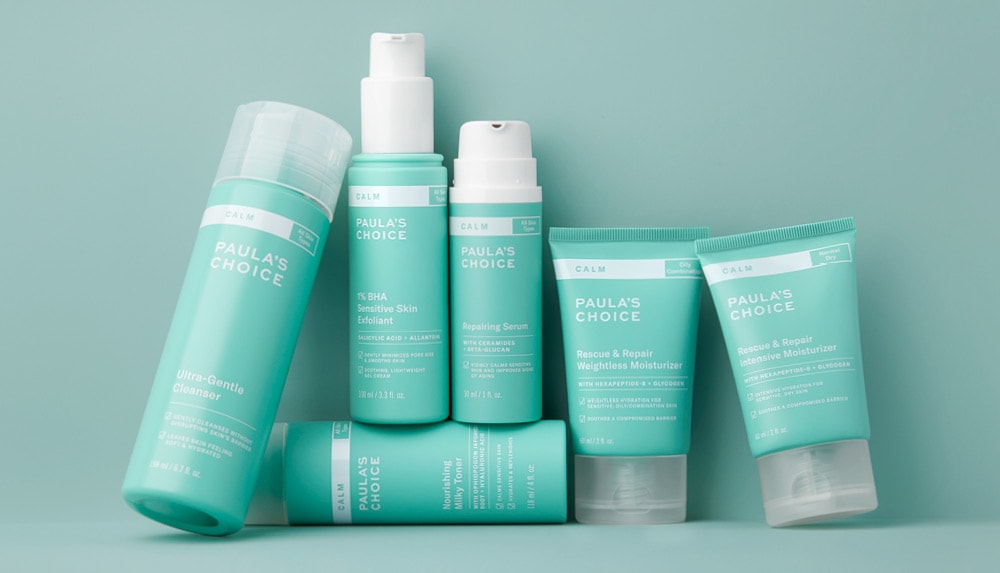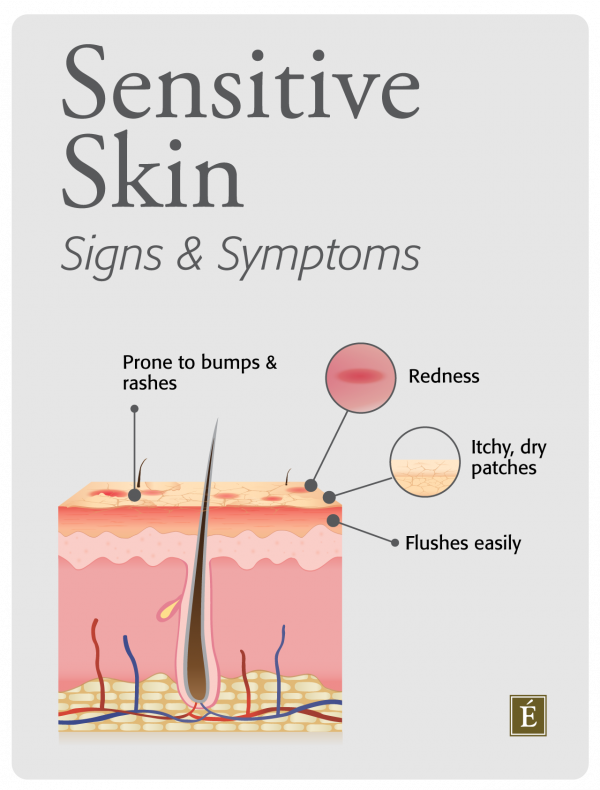
Sensitive skin care requires gentle products and a consistent routine. Avoid harsh chemicals and fragrances to prevent irritation.
Sensitive skin needs special attention to avoid irritation and discomfort. People with sensitive skin often experience redness, itching, and dryness, which can be exacerbated by harsh skincare products. Choosing the right products and following a consistent skincare routine can help manage these symptoms.
Look for gentle cleansers, hydrating moisturizers, and sunscreens formulated for sensitive skin. Patch test new products to ensure they won’t cause a reaction. Hydration and protection are key to maintaining healthy, comfortable skin. With careful selection of products and mindful skincare habits, sensitive skin can be kept calm and healthy.
Sensitive Skin Demystified
Understanding sensitive skin can feel overwhelming. It doesn’t have to be. Let’s break it down simply. Sensitive skin reacts more easily to various factors. This can include products, environmental changes, and even stress.
Identifying Sensitive Skin
Identifying sensitive skin is crucial. You need to know the signs and symptoms. Here are some common indicators:
- Redness: Your skin may turn red quickly.
- Itching: Frequent itching is a major sign.
- Dryness: Skin feels dry and flaky.
- Burning Sensation: Products can cause a burning feeling.
- Rashes: You might get rashes often.
Common Irritants And Triggers
Knowing the irritants can help you avoid them. Here are the most common triggers for sensitive skin:
| Irritant | Description |
|---|---|
| Fragrances | Perfumes and scented products can cause reactions. |
| Harsh Chemicals | Certain chemicals in skincare can irritate the skin. |
| Extreme Weather | Very hot or cold weather can affect sensitive skin. |
| Stress | High stress levels can trigger skin reactions. |
| Certain Foods | Spicy or acidic foods may cause flare-ups. |
Understanding these triggers helps in managing sensitive skin better. Always use gentle, fragrance-free products. Keep your skin hydrated and protected from extreme weather.
The Role Of Genetics And Environment
Caring for sensitive skin involves understanding its unique needs. Two main factors influence sensitive skin: genetics and environment. Both play a significant role in how your skin reacts to various conditions and products.
Inherited Sensitivities
Genetics play a crucial role in skin sensitivity. If your parents have sensitive skin, you are more likely to inherit it. Sensitive skin often runs in families.
Specific genetic factors can make your skin more prone to irritations. These include conditions like eczema, rosacea, and psoriasis. These conditions can be passed down through generations.
| Condition | Genetic Link |
|---|---|
| Eczema | High |
| Rosacea | Moderate |
| Psoriasis | High |
Family history is an important indicator. It helps dermatologists understand your skin better. Knowing your genetic background can guide you in choosing the right products.
External Factors Affecting Skin Health
Environmental factors also impact sensitive skin. Pollution, UV rays, and weather changes can cause irritation.
- Pollution: Dirt and chemicals in the air can clog pores.
- UV Rays: Sun exposure can lead to burns and aging signs.
- Weather Changes: Extreme cold or heat affects skin moisture.
Lifestyle choices are equally important. Smoking and a poor diet can worsen skin sensitivity. Always consider your surroundings and lifestyle when caring for your skin.
Protective measures can help. Use sunscreen, wear protective clothing, and follow a healthy diet. Simple steps make a big difference in managing sensitive skin.
Daily Routines For Sensitive Skin
Sensitive skin needs special care every day. Following a gentle routine can help keep it healthy and happy. Below are some tips and practices to incorporate into your daily skincare regimen.
Gentle Cleansing Practices
Cleansing is the first step in any skincare routine. For sensitive skin, choose a mild, fragrance-free cleanser. Avoid harsh soaps and scrubs.
Use lukewarm water to wash your face. Hot water can strip away natural oils and irritate the skin. Gently pat your face dry with a soft towel. Do not rub.
Here is a simple cleansing routine:
- Use a gentle cleanser.
- Wash with lukewarm water.
- Pat dry with a soft towel.
Moisturizing With Care
Moisturizing is crucial for sensitive skin. Choose a hypoallergenic moisturizer without fragrances or dyes. Look for ingredients like glycerin, hyaluronic acid, and ceramides.
Apply moisturizer while your skin is still damp. This helps lock in moisture. Use a small amount and gently spread it over your face.
Here is a quick guide to moisturizing:
- Pick a hypoallergenic moisturizer.
- Apply on damp skin.
- Use a small amount and spread gently.
| Step | Action |
|---|---|
| 1 | Choose a mild cleanser. |
| 2 | Wash with lukewarm water. |
| 3 | Pat dry gently. |
| 4 | Apply a hypoallergenic moisturizer. |
| 5 | Use a small amount. |

Credit: www.paulaschoice-eu.com
Choosing The Right Products
Finding the right products for sensitive skin can be tricky. Sensitive skin needs gentle care and specific ingredients. Picking the wrong products can lead to irritation and redness. Here’s a guide to help you choose the best products for your sensitive skin.
Ingredients To Look For
Certain ingredients are ideal for sensitive skin. Always check the labels before buying.
- Aloe Vera: Known for its soothing properties.
- Chamomile: Helps reduce inflammation and redness.
- Oatmeal: Provides gentle exfoliation and hydration.
- Hyaluronic Acid: Keeps skin hydrated without irritation.
- Shea Butter: Moisturizes and protects the skin barrier.
Ingredients To Avoid
Avoiding certain ingredients can prevent irritation and allergic reactions.
| Ingredient | Reason to Avoid |
|---|---|
| Alcohol | Dries out the skin and causes irritation. |
| Fragrances | Can cause allergic reactions and skin irritation. |
| Sulfates | Strips natural oils from the skin. |
| Parabens | May cause hormonal imbalances and skin issues. |
| Artificial Colors | Can lead to allergies and irritation. |
Choose products with fewer ingredients. This reduces the risk of skin reactions. Always do a patch test before using a new product. This ensures it’s safe for your skin.
Diet And Sensitive Skin
Taking care of sensitive skin goes beyond just skincare products. Your diet plays a crucial role in maintaining healthy skin. Certain foods can nourish your skin, while others may trigger reactions. Let’s explore how diet affects sensitive skin.
Foods That Nourish
Eating the right foods can help keep your skin calm and healthy. Here are some foods that nourish sensitive skin:
- Omega-3 fatty acids: Found in fish like salmon and flaxseeds, omega-3s reduce inflammation.
- Antioxidant-rich foods: Berries, nuts, and leafy greens protect your skin from damage.
- Probiotics: Yogurt and kefir improve gut health, benefiting your skin.
- Vitamin E: Nuts and seeds provide this vitamin, which soothes sensitive skin.
- Hydrating foods: Cucumbers and watermelon keep your skin hydrated.
Foods That May Trigger Reactions
Certain foods can cause flare-ups in sensitive skin. It’s essential to identify and avoid them. Here are some common triggers:
- Dairy products: Cheese and milk can lead to breakouts in some individuals.
- Spicy foods: Chili and hot peppers may cause redness and irritation.
- Processed foods: Chips and sugary snacks often contain additives that trigger reactions.
- Alcohol: Wine and beer can dehydrate your skin, leading to sensitivity.
- Caffeine: Coffee and tea may cause dryness and irritation for some people.
Here is a quick reference table to summarize:
| Foods that Nourish | Foods that May Trigger Reactions |
|---|---|
| Omega-3 fatty acids | Dairy products |
| Antioxidant-rich foods | Spicy foods |
| Probiotics | Processed foods |
| Vitamin E | Alcohol |
| Hydrating foods | Caffeine |
Professional Treatments And Sensitive Skin
Professional treatments can greatly benefit those with sensitive skin. These treatments need special care and attention. Using the right procedures ensures your skin stays healthy and beautiful. Always choose treatments that suit your skin type.
Safe Skincare Procedures
When dealing with sensitive skin, it’s important to know which procedures are safe.
- Microdermabrasion: This is a gentle exfoliation method. It helps to remove dead skin cells without causing irritation.
- LED Light Therapy: This treatment uses light to soothe and heal the skin. It’s non-invasive and suitable for sensitive skin.
- Hydrating Facials: These facials focus on moisturizing the skin. They can help to calm and nourish sensitive skin.
Always ensure your skincare professional is aware of your skin sensitivity. This helps them choose the best and safest treatments for you.
When To Consult A Dermatologist
Knowing when to see a dermatologist is crucial for sensitive skin care.
- Persistent Redness: If your skin remains red for a long time, see a dermatologist.
- Severe Reactions: Any extreme reaction to products or treatments needs professional advice.
- Unusual Changes: If you notice any new or unusual changes in your skin, consult a dermatologist.
Dermatologists can provide tailored advice and treatments. They help you manage sensitive skin effectively and safely.
| Treatment | Suitability for Sensitive Skin |
|---|---|
| Microdermabrasion | Safe with gentle application |
| LED Light Therapy | Highly suitable |
| Hydrating Facials | Very beneficial |
Stress Management For Skin Health
Stress can wreak havoc on your skin. Sensitive skin needs extra care during stressful times. Managing stress effectively can boost your skin health.
Impact Of Stress On Skin
Stress can cause various skin problems. It can lead to acne, redness, and dryness. Stress triggers the release of cortisol, a hormone that affects skin health. High cortisol levels can increase oil production, leading to breakouts. Stress can also weaken the skin barrier, making it more prone to irritation and sensitivity.
When stressed, you may notice more wrinkles. Stress reduces skin elasticity, causing premature aging. Sensitive skin can become more reactive during stressful periods. It is crucial to manage stress for better skin health.
Relaxation Techniques
Relaxation techniques can help reduce stress. Breathing exercises are simple yet effective. Try deep breathing to calm your mind and body.
Meditation can also reduce stress levels. Spend a few minutes each day in quiet meditation. Focus on your breath or a calming image.
Yoga combines physical postures with breathing exercises. It helps relax both the mind and body. Regular yoga practice can improve your overall well-being.
Adequate sleep is vital for stress management. Ensure you get 7-8 hours of restful sleep each night. A good night’s sleep can rejuvenate your skin.
Maintaining a healthy diet is crucial. Eat foods rich in antioxidants, vitamins, and minerals. These nutrients can help combat the effects of stress on your skin.
| Relaxation Technique | Benefit |
|---|---|
| Breathing Exercises | Calm mind and body |
| Meditation | Reduce stress levels |
| Yoga | Relax mind and body |
| Sleep | Rejuvenate skin |
| Healthy Diet | Combat stress effects |
- Deep breathing calms the nervous system.
- Meditation fosters a peaceful state of mind.
- Yoga enhances physical and mental relaxation.
- Adequate sleep is essential for skin repair.
- Nutritious food supports overall health.

Credit: eminenceorganics.com
Sensitive Skin And Sun Protection
People with sensitive skin need to be extra cautious about sun protection. Sun exposure can trigger various skin issues, including redness, irritation, and even eczema. Proper sun protection is crucial for maintaining healthy and radiant skin.
Choosing Sunscreens
Choosing the right sunscreen is vital for sensitive skin. Opt for sunscreens labeled as “broad-spectrum”, which protect against both UVA and UVB rays. Mineral-based sunscreens with zinc oxide or titanium dioxide are gentler on the skin.
Avoid sunscreens with harsh chemicals, fragrances, and alcohol. These ingredients can irritate sensitive skin. Look for sunscreens that are hypoallergenic and non-comedogenic.
| Ingredient | Benefit |
|---|---|
| Zinc Oxide | Provides broad-spectrum protection |
| Titanium Dioxide | Gentle on sensitive skin |
| Hypoallergenic | Reduces the risk of irritation |
Sun Exposure Tips
Limit your time in the sun, especially during peak hours from 10 AM to 4 PM. This is when the sun’s rays are the strongest and most harmful. Seek shade whenever possible to minimize direct exposure.
Wear protective clothing like long-sleeved shirts, wide-brimmed hats, and sunglasses. These items provide an extra layer of protection against harmful UV rays.
Reapply sunscreen every two hours, or more often if you’re sweating or swimming. This ensures continuous protection throughout the day.
Stay hydrated by drinking plenty of water. Hydrated skin is less likely to become irritated and more resilient against sun damage.
- Limit sun exposure during peak hours.
- Seek shade whenever possible.
- Wear protective clothing.
- Reapply sunscreen every two hours.
- Stay hydrated.
Myths And Truths About Sensitive Skin
Many people have sensitive skin. But there are many myths about it. Knowing the truth helps care for your skin better.
Debunking Common Myths
There are many myths about sensitive skin. Let’s clear some up.
- Myth: Sensitive skin is rare.
- Truth: Sensitive skin is very common. Many people have it.
- Myth: Only women have sensitive skin.
- Truth: Men can have sensitive skin too. Gender does not matter.
- Myth: Sensitive skin means allergies.
- Truth: Sensitive skin is not always allergies. It can be many things.
Surprising Facts
Here are some surprising facts about sensitive skin. Knowing these can help manage it better.
- Fact: Sensitive skin can change over time.
- Fact: Weather affects sensitive skin a lot.
- Fact: Stress can make sensitive skin worse.
Below is a table showing common triggers and remedies for sensitive skin:
| Trigger | Remedy |
|---|---|
| Harsh soaps | Use mild cleansers |
| Hot water | Wash with lukewarm water |
| Stress | Practice relaxation techniques |
Taking care of sensitive skin is important. Avoid harsh chemicals and use gentle products. Your skin will thank you.

Credit: www.womenshealthmag.com
Empowering Yourself With Knowledge
Understanding your skin is the first step to effective care. Sensitive skin needs special attention. Knowledge is your most powerful tool. Learn and protect your skin better.
Staying Informed On Skincare
Stay updated with the latest skincare trends. Read articles and follow dermatologists. Watch educational videos. Knowledge helps you make informed choices.
- Read labels on skincare products
- Understand ingredients that soothe sensitive skin
- Avoid harsh chemicals that irritate the skin
Building A Personalized Skincare Routine
Create a routine that suits your skin. Personalization is key. Not all products work for everyone.
- Cleanse gently with a mild cleanser
- Moisturize daily to keep skin hydrated
- Use sunscreen to protect from UV rays
Track your skin’s response. Adjust the routine as needed. Consistency is crucial for results.
| Step | Product | Frequency |
|---|---|---|
| 1 | Gentle Cleanser | Twice Daily |
| 2 | Hydrating Moisturizer | Morning and Night |
| 3 | Sunscreen (SPF 30+) | Every Morning |
Listen to your skin. Adjust products based on needs. Your skin will thank you.
Frequently Asked Questions
Which Brand Is Best For Sensitive Skin?
CeraVe is a top choice for sensitive skin. Its products are dermatologist-recommended, fragrance-free, and contain essential ceramides.
What Is The Best Thing For Sensitive Skin?
Use gentle, fragrance-free cleansers and moisturizers. Opt for hypoallergenic products. Always patch-test new skincare items. Avoid harsh chemicals.
What Do Dermatologists Recommend For Very Sensitive Skin?
Dermatologists recommend using fragrance-free, gentle cleansers and moisturizers. Avoid harsh chemicals and choose products with minimal ingredients. Always perform a patch test.
How Can I Clear My Sensitive Skin Naturally?
Cleanse gently with a mild, fragrance-free cleanser. Use natural moisturizers like aloe vera or coconut oil. Avoid harsh chemicals. Stay hydrated and eat a balanced diet rich in antioxidants. Protect your skin from sun exposure with natural sunscreen.
Conclusion
Caring for sensitive skin requires attention to detail and the right products. Remember to choose gentle, fragrance-free options. Always patch-test new products to avoid reactions. Consistency in your skincare routine can make a significant difference. By following these tips, you can maintain healthy and balanced sensitive skin.





